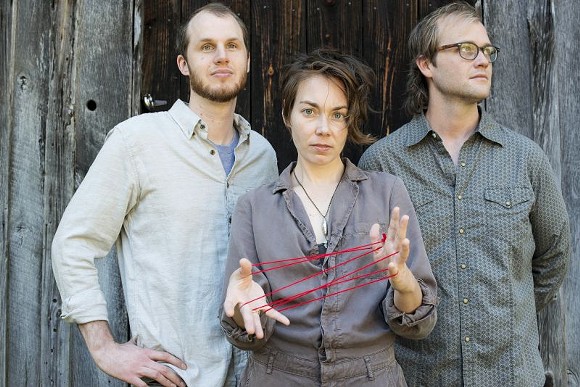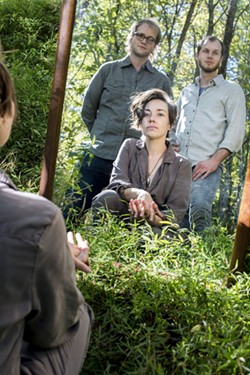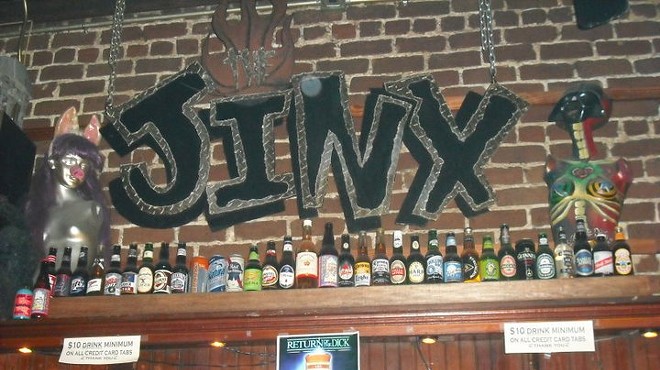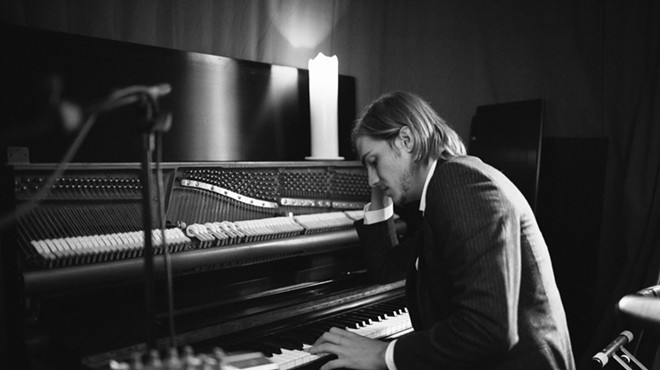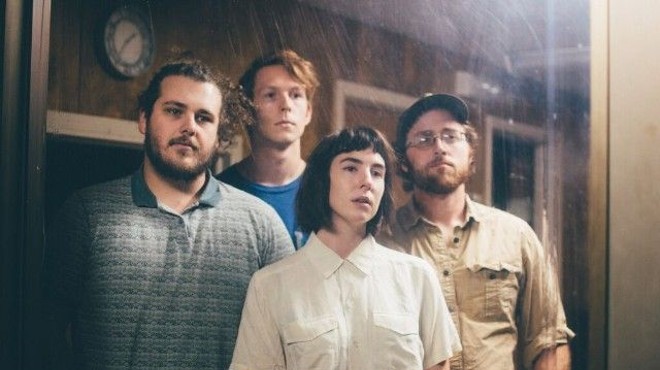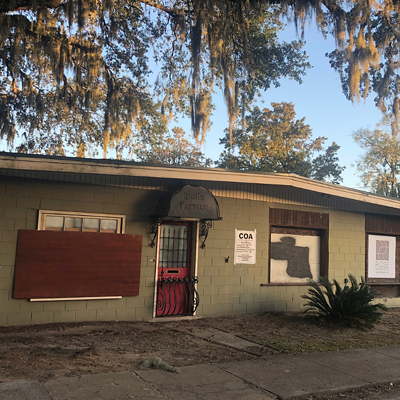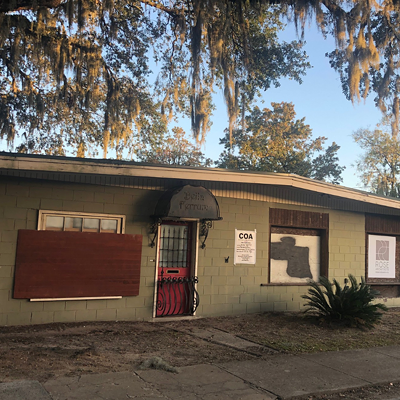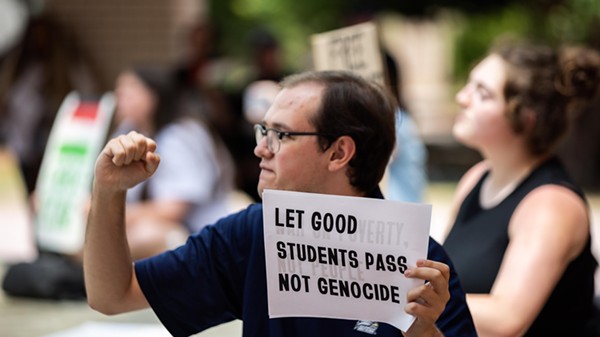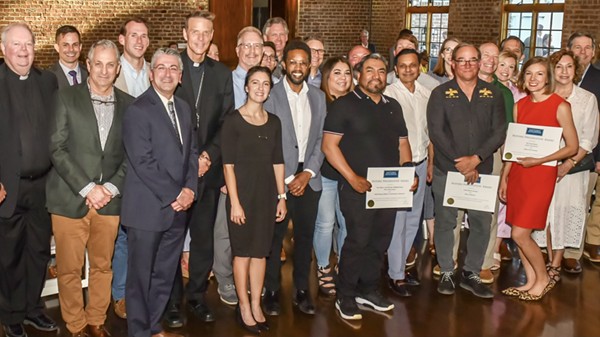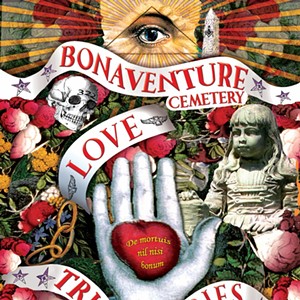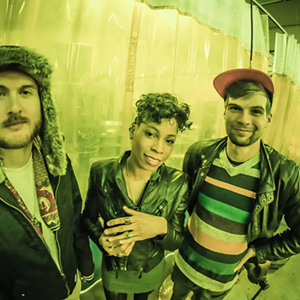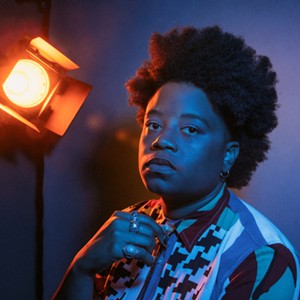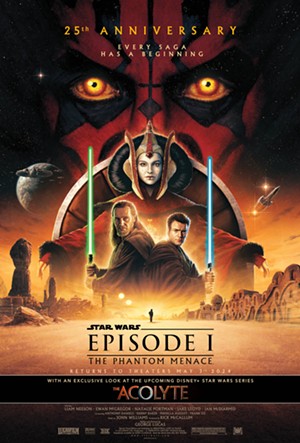"BABY, do you like to dance?" Heather McEntire quips. "Do you like it slow or sorta fast?"
The Mount Moriah singer-songwriter’s voice is a vessel of experience with its elegant country waiver, vulnerable tremor, and triumphant power. Melody blazes the trail on How to Dance, the band’s third album, held up by keyboard swells, meditative space, and guitars with just the right touch of twang.
Mount Moriah’s latest LP—dedicated to “anyone who has ever felt the cold shadows of oppression or discrimination; to the misfits, the outcasts, the loners, the misunderstood, the underdogs; to the activists who devote their lives fighting for social justice; the artists how exist to create and create to exist, even when the fruits of their labor are threatened; to the animals of the world who teach us unconditional love; to the healers and counselors who follow our pain and show us how to heal; to the community leaders who seek not to divide us, but to unite us in compassion and humanity; to those who pursue the expansion of mind and emotion; to the cosmos and to the magic; to the seekers”—is the perfect salve for the days following the election.
The North Carolina-based alt-Americana band has long been revered for its tender indie-folk renderings, but McEntire, guitarist Jenks Miller, and bassist/keyboardist Casey Toll have kicked a new intensity into their sound, bringing country grit and a little rock to How to Dance. Through ten elegant yet homespun tracks, McEntire engages the darkness head-on, and, in doing so, illuminates a path for her listeners.
McEntire, who’s currently touring as a member of Angel Olsen’s band, returns home just to hit the road once more in support of How to Dance.
We spoke with guitarist Miller about the project’s growth, intention, and the struggles and joys of being a progressive artist in the South.
This is your third album, and y’all have really found your groove. Do you feel this is Mount Moriah at its best?
I think that’s fair. I think we definitely feel best about the way this one turned out. I think it’s the one that most closely resembles the original idea for the record and the hopes we had for it.
What was the original idea like?
We wanted to make a record that was a little more upbeat than the previous two, that had more grit to it and more rocking songs. We have a lot more fun playing that kind of thing live, and we wanted to write a record that would play into that.
You come from a heavier music background; does it feel more familiar, playing these rowdier numbers?
I love so much different music. I don’t necessarily only like heavy music. I think that, especially being onstage, and I think Heather would agree, that’s it’s a lot more fun to be able to harness that energy, and Heather especially is such an active performer. She moves around a lot as a result. She wanted to be able to get into the music more that way. It’s a little closer to the other projects I’ve been most involved in, but it’s still in a different ballpark.
Do you feel like the new songs fit in with the older material in the live set?
As far as it feels to get to play a set that feels really cohesive, we’ve been concentrating on the rocking songs from each record. We’re not playing the slowest and saddest songs anymore. Most of what we had in our set were depressing in artistic way. The set has definitely changed and we’re more of a rock band.
Did the new direction impact the way you recorded the album?
It did, and part of that was because we decided to do a lot of it on our own this time. We recorded basic tracks and also we worked with a really good friend, Heather’s roommate, to record the drum tracks. And he’s played with me, he’s somebody we all know and like. Then we really did most of the rest of the stuff on our own, so it felt more organic in that way. It felt more hands-on. It was also more stressful at times, because we weren’t in a nice studio. The record felt different to make.
You had some great guests, like Angel Olsen and Amy Ray and Mirah. What’s it like when guests come in, do you provide them with a lot of direction or keep it open?
We usually have a good idea of what we want in terms of arrangement. All of the guests we had on there have pretty distinctive aspects to their performance, so it was more about communicating what we wanted the arrangements to do as a whole, and they could interpret the emotion behind the songs how they wanted to.
In the liner notes, How to Dance is dedicated to the oppressed, outcast, and discriminated against. Can you talk a little about that?
So Heather wrote those, and they definitely speak in a lot of ways where all of our heads are at these days.
I don't know how things are in your state, but in North Carolina, this has been a really tough year politically. I think, especially with Heather coming from the LGBT community, she has really felt the need to speak out against pretty repressive measures from our state government, HB2 being the big one, and just the environment leading up to that and this kind of clash in our state.
I think it's also just reaffirming the value of those things to ourselves in our own lives, that there's just a kind of feeling sometimes that things get lost in this kind of digital ether, and being able to pinpoint what our values are and what we're working toward in a really explicit way is empowering.
Y'all are very candid about being a progressive band in the South. Growing up here, did you imagine yourself staying and playing music in your home state? Did you feel that need to 'get out'?
Yeah, probably. I’ve always really loved it here, and it does feel like home. We’ve been a band for almost a decade, and being on the road pretty frequently has reaffirmed how much I like it here.
There is a sense of needing to exert our influence in order to claim the positive aspects of this place in order to conserve those things. We’ve always been somewhat informed by this kind of thing—we’re not an explicitly political band, it’s more about the identity that Heather’s expressing in her lyrics—it’s not as much about policy as it is about identity and what it means struggling with this idea of what it means to be a Southerner today.
I plan to stay here—I don’t know that I can speak for anybody else—but it does feel like home to me.

